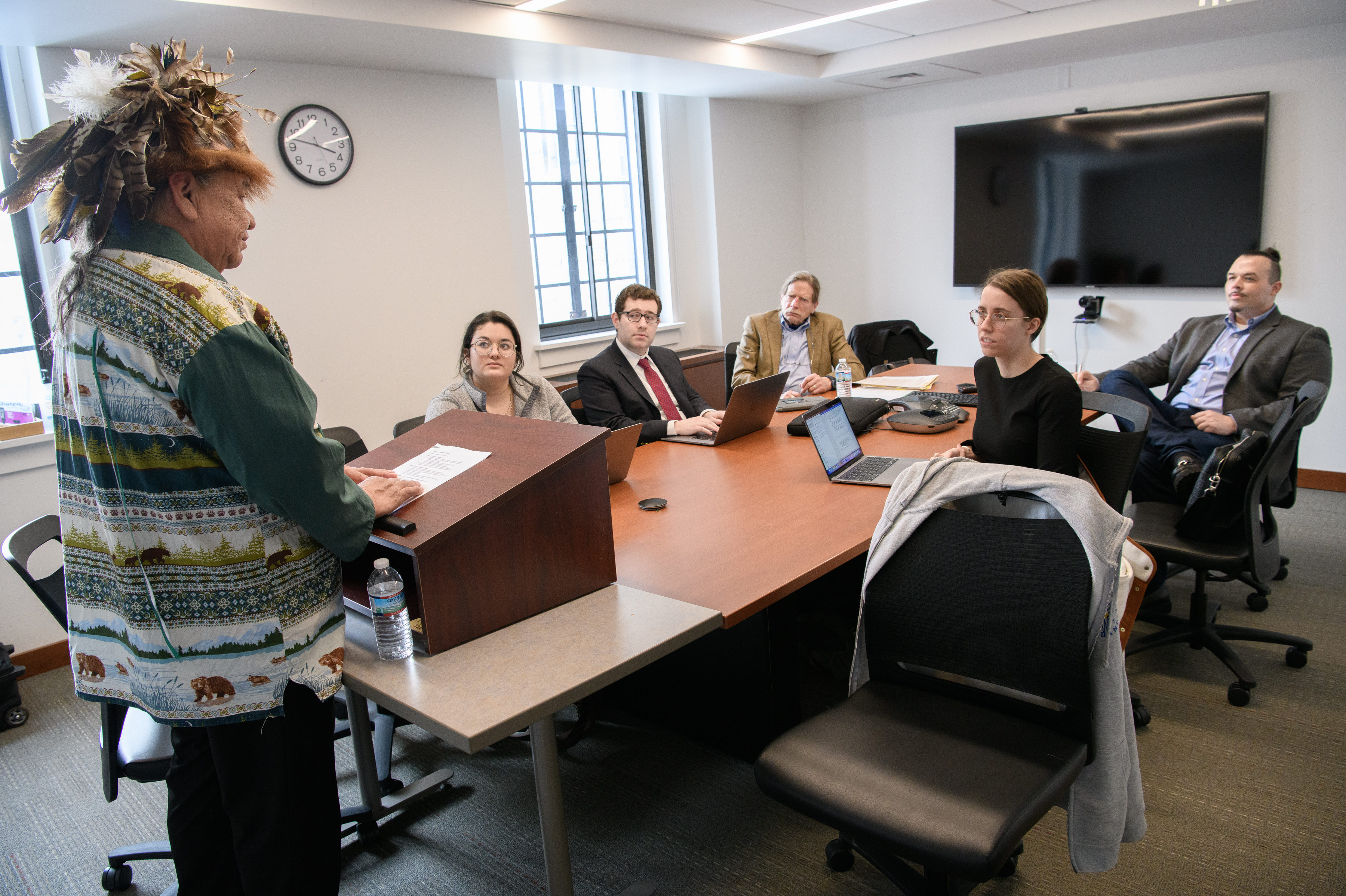This website uses cookies
We use cookies to ensure that we give you the best experience on our website. If you continue to use this site we will assume that you are happy with it.
Federal Indian law memorializes the nuanced legal relationships between American Indian tribes, long recognized as distinct political bodies with the power to self-govern, and the federal government.
Treaties between the United States and individual tribes, congressional statutes, executive orders, regulations, court decisions, and even the United States Constitution all provide source material for the greater body of federal Indian law, and issues within this field often involve elements of myriad other areas of law, including administrative, constitutional, property, criminal, contracts, civil procedure, environmental, water, and corporate laws.

Students in the Federal Indian Law Practicum experience a broad array of lawyering skills in a highly-collaborative environment. Work in the practicum often involves litigation, and students generally have the opportunity to meet with the clients face-to-face at least once each semester, though this does require off-premises travel. This practicum is writing-intensive, and students are expected to produce high-quality legal documents.
Student work may involve any of the following areas:
The materials involved in the practicum are novel and complex, and in-class time each week will be devoted toward understanding these materials, refining work product, planning legal strategy, and developing the skills needed for effective client representation and interaction. Accordingly, Federal Indian Law Practicum I students are expected to spend the time necessary outside of class to refine their understandings of the source material and any parallel areas of law associated with the client’s matter. Background in administrative law is helpful, though not required.
Federal Indian Law Practicum II, III, and IV are advanced courses for students who have completed previous semesters in the practicum. These advanced clinic students are expected to take on leadership roles within the practicum and assist newer students with their understanding of the source material and the preparation of any documents required for the matter.
To apply, students may submit a resume, transcript, and a brief statement of interest in the online application process. Learn more and apply on the current student community website.